Dutch Kick Off EU Vote With All Eyes On Far Right

The Netherlands on Thursday kicked off the marathon four-day European elections with the Dutch far right urging voters to make a crackdown on immigration the headline issue.
Most of the European Union's 27 nations go to the polls on Sunday, with some 370 million people called to vote.
Exit polls from the early Dutch election, due Thursday evening, will provide a litmus test for the hard-right's predicted surge across the bloc.
"We want less immigration, we want to toughen up asylum rules and policies," Geert Wilders, head of The Netherlands' extreme-right Freedom Party (PVV), said after casting his ballot.
His call to shift the European Parliament rightward has resonated with Dutch voters such as Simone Nieuwenhuys, a 48-year-old government worker.
"I want the EU to change," she told AFP after voting for the PVV. "I think we're too open. We should be more critical as to who we let in because it costs a lot of money."
Already part of a Dutch coalition government after a surprise election victory last year, Wilders' party is projected to also win the EU elections in the country.
Surveys suggest the far right could grab a quarter of the incoming EU parliament's 720 seats.
That prospect has rattled the legislature's main groupings, the conservative European People's Party (EPP) and the leftist Socialist and Democrats.
Current European Commission chief Ursula von der Leyen, seeking a second term, has opened the door to her EPP working with the far right to ensure legislation is passed.
Von der Leyen, a polyglot former German defence minister, has been courting Italian premier Giorgia Meloni, who heads the post-fascist Brothers of Italy party.
EU leaders, including Meloni, will decide after the elections who should helm the commission. Their choice needs the backing of a simple majority in the European Parliament.
The EU recently overhauled immigration policies to toughen its borders and speed up deportations, but far-right parties want an even stricter approach.
While Wilders' message has galvanised some Dutch voters, for others it has been a "wake up" call. Claudia Balhuizen was first in line to vote at her polling station in The Hague.
He "is getting a lot more attractive for a lot of people and I can understand that", admitted the 42-year-old engineer, who argued for more EU unity in the face of climate change.
Hugo van den Hoek Ostende, who heads a Dutch cultural organisation, echoed her pro-European message.
"What matters to me is that people start talking to one another again, treating one another like human beings," said the 64-year-old. "And I think Europe has a very important role to play in that respect."
The EU elections are happening at a time of deep geopolitical uncertainty, with many voters viewing the bloc as a haven of stability.
Member countries, which have thrown their support behind Ukraine as it fights off Russia's invasion, are also confronted with increasing US-China rivalry, Mideast turmoil, trade tensions and climate change.
Analysts said that while much attention was on the far-right's predicted surge, the more important question was whether the EPP would ally with far-right lawmakers.
"The real storyline of these EU elections is... the extent to which the centre-right is prepared to normalise some of those parties," Alberto Alemanno, an expert on the bloc, wrote on the X platform.
The possibility of Donald Trump returning as US president after November elections has also focused European minds -- and given a boost to parties in the EU aligned with Trump's nationalist views.
While The Netherlands is an early test of the far-right's fortunes, scrutiny will soon shift to the EU's bigger economies as they open their polling stations.
Marine Le Pen's National Rally party is predicted to come out on top in France, as is Meloni's party in Italy, and Hungarian Prime Minister Viktor Orban's far-right Fidesz party.
In Germany, the extreme-right AfD is polling second, behind the opposition conservatives. In Austria, the far-right Freedom Party looks on track for victory.
Third place could go to the centrist Renew Group, eyeing 75 seats -- unless it is overtaken by far-right parties mulling the formation of a supergroup, as Le Pen wants.
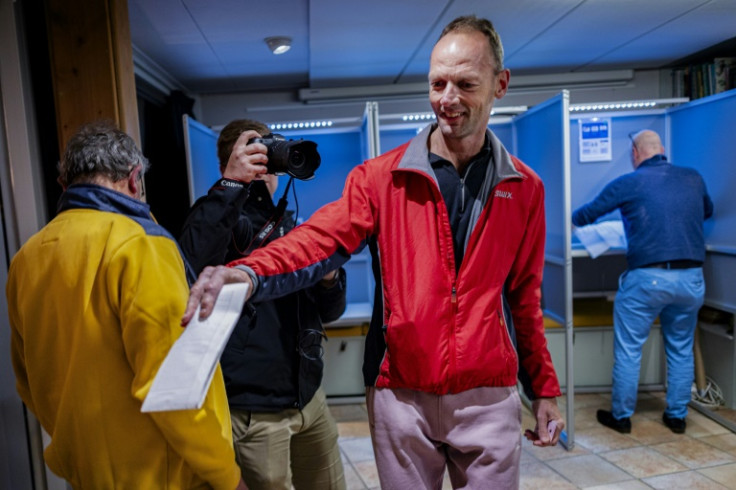
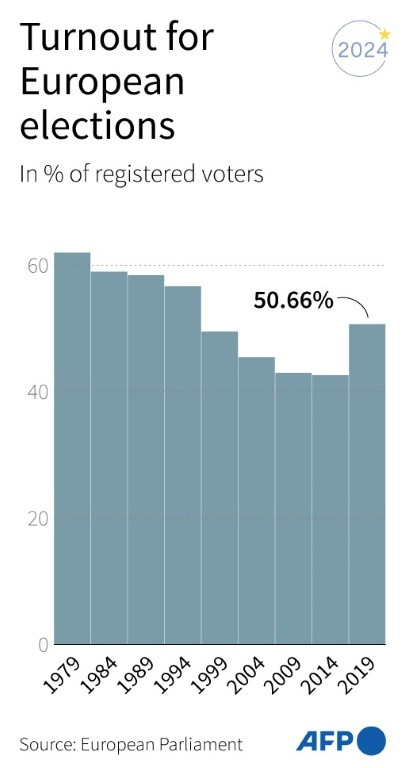
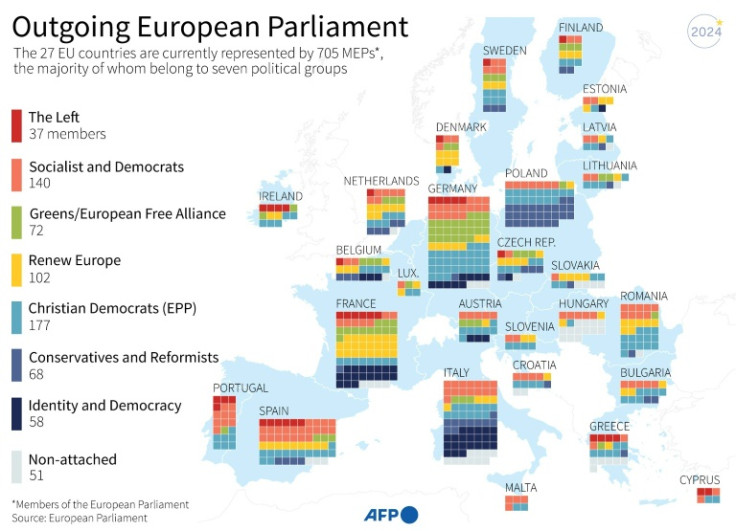
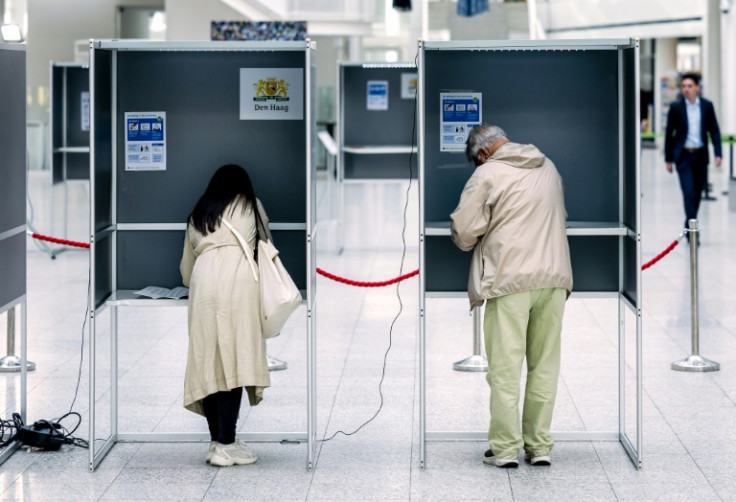
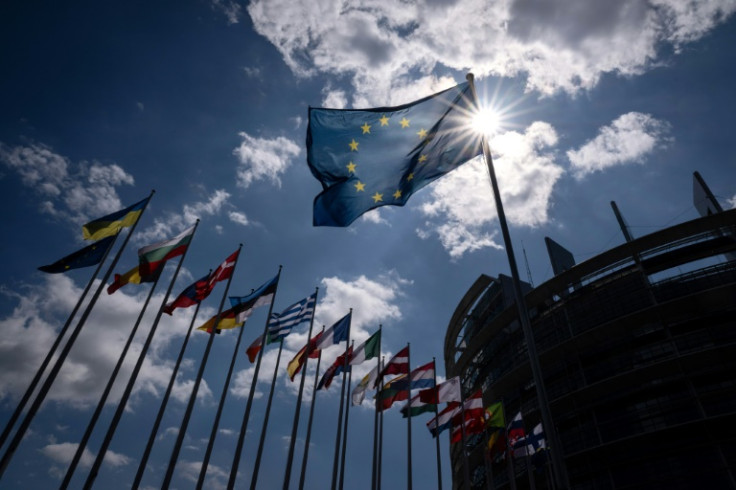
© Copyright AFP 2024. All rights reserved.





















